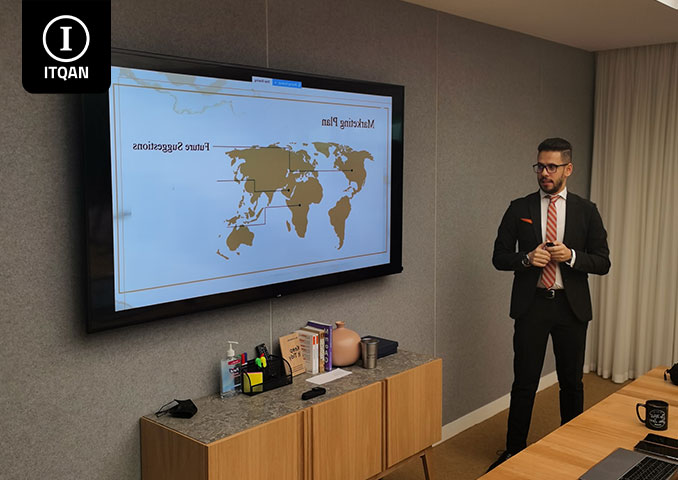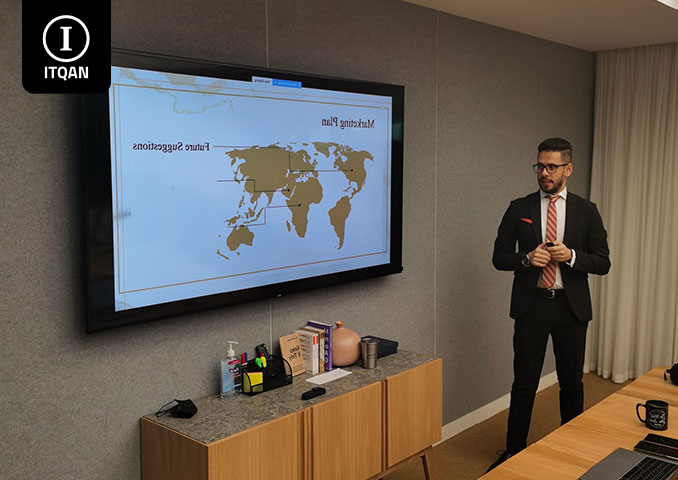How to establish a company in the Ajman Free Zone. Free zones are considered one of the most important economic tools that countries adopt to attract foreign and local investments and promote economic growth. These areas provide a distinct commercial environment characterized by facilities and exemptions that make them a preferred destination for many companies and entrepreneurs. Establishing a company in a free zone can be an important strategic step to achieve success and growth in local and international markets.
In this article, we will discuss in detail the benefits of establishing a company in a free zone , the practical steps to achieve this, in addition to the potential challenges and how to overcome them. We will also review the reasons why free zones are an ideal environment for business, and how investments in these zones can contribute to achieving growth and expansion goals.

Benefits of establishing a company in the free zone
Establishing a company in the free zone carries many benefits that make it an attractive option for entrepreneurs and investors. These benefits include:
Tax exemptions
Tax exemptions are among the most prominent benefits that attract companies to establish their businesses in free zones. These areas provide complete or partial exemptions from taxes on income and profits for long periods of time. This exemption reduces operational costs and increases financial returns for companies, enabling them to reinvest profits in developing and expanding their business.
Import and export facilities
Free zones provide great facilities in import and export operations, as customs procedures are simplified and duties imposed on goods are reduced. This contributes to accelerating the movement of goods and reducing logistics costs, enabling companies to respond faster to market needs and increase the efficiency of business operations.
Favorable business environment
Developed infrastructure and a favorable business environment are factors that make free zones attractive to companies. This environment includes advanced logistics centers, high-quality communications services, and advanced transportation networks. In addition, free zones provide a legal and regulatory environment that supports innovation and facilitates doing business, which enhances the opportunities for success and growth for startups and investors.
In short, establishing a company in a free zone provides tax advantages, facilities in business operations, and a supportive business environment, all of which contribute to the success and sustainability of a business.
Practical steps for establishing a company
Establishing a company in the free zone requires following a set of practical steps that ensure compliance with local laws and making the most of the available features. In this section, we will review the most important steps that must be taken to achieve this.
Choose the company type
The first step in establishing a company in the free zone is to choose the type of company that suits your business goals. There are several types of companies that can be established in free zones, including:
- Limited Liability Company (LLC)
- Branch of a foreign company
- Representative office
You should evaluate each type of company based on its legal structure and requirements, and choose the type that best suits your business activity and future plans.
Registration and obtaining licenses
After choosing the type of company, comes the step of registering and obtaining the necessary licenses. This step requires submitting a set of documents and information to the relevant authorities in the free zone, which may include:
- Company registration application
- Memorandum of Association and Articles of Association
- workplan
- Copies of passports of founders and directors
After submitting these documents, the authorities will review them and ensure that they comply with the required conditions and standards. Upon approval, you will obtain the necessary licenses to start the business.
Preparing legal documents
The final step in the company establishment process is the preparation of legal documents that regulate the company’s work and protect the rights of the founders and partners. These documents usually include:
- Articles of Association: This contract defines the legal structure of the company, and includes information about the founders, ownership percentage, and company objectives.
- Articles of Association: It contains the rules and regulations that govern the company’s management and daily work.
- Partnership agreements: If there are partners, agreements must be prepared specifying the rights and duties of each partner.
It is important to engage professional legal counsel to ensure that all legal documents are properly prepared and comply with local laws and regulatory requirements.
By carefully implementing these practical steps, you can successfully establish your company in the free zone and benefit from the advantages offered by these zones.

Challenges and how to overcome them
Establishing a company in the free zone may seem like a tempting option to many entrepreneurs, but this does not mean that the path to success is free of challenges. It is essential that you have a deep understanding of these challenges and how to overcome them to ensure the continuity and success of your business. Here are some of the main challenges you may face and how to deal with them:
Changes in government policies
Continuous changes in government policies are considered one of the most prominent challenges that companies in free zones may face. These changes may include business laws, taxes, and regulations. To overcome this challenge, companies must:
- Stay up to date: Regularly follow government news and updates to ensure compliance with new laws.
- Hiring legal advisors: Hiring lawyers and legal advisors who specialize in free zone laws can help in correctly interpreting and applying the new regulations.
- Strategic planning: developing alternative plans and flexible strategies that help adapt to any sudden changes in government policies.
Competitiveness in the market
High competitiveness in the market is another challenge that must be faced. Many companies seek to take advantage of the advantages of free zones, which leads to market congestion and increased competition. To overcome this challenge, it is recommended to:
- Uniqueness and innovation: Providing unique and innovative products or services that can differentiate your company from competitors.
- Market analysis: Conducting continuous market studies and research to understand customer needs and preferences, which enables the company to provide offers that are in line with demand.
- Improving Quality and Service: Ensuring the delivery of high quality products or services, with an emphasis on providing excellent customer service to increase customer satisfaction and loyalty.
Financing and financial resources
Obtaining sufficient funding and financial resources to establish and operate a company can be a major challenge. To overcome this challenge, the following steps can be followed:
- Preparing a solid business plan: Preparing a detailed business plan that includes realistic financial expectations that can help attract investors and financiers.
- Search for various sources of financing: Take advantage of different sources of financing such as bank loans, venture capital, and government grants.
- Manage costs effectively: Monitor costs and reduce unnecessary expenses to ensure long-term financial sustainability.
Dealing with these challenges effectively requires good planning, flexibility, and a willingness to adapt to changing circumstances. By taking appropriate action and utilizing available resources, companies can achieve success and prosperity in the free zone business environment.
Our company’s role in establishing a company in the free zone
In conclusion, it can be said that establishing a company in the free zone provides many benefits that make it an attractive option for investors and entrepreneurs. By taking advantage of tax exemptions, import and export facilities, and a favorable business environment, companies can achieve significant growth and expansion into global markets.
Despite the many benefits, companies must be prepared to face challenges that may arise, such as changes in government policies, competitiveness in the market, and financing and financial resources. Through good planning and extensive research, companies can overcome these obstacles and ensure the continuity and success of their businesses.
Therefore, making the decision to establish a company in the free zone deserves serious consideration, especially if all steps and procedures are prepared accurately and organized. Understanding the legal and economic environment of the free zone, and adhering to the terms and requirements, can ensure achieving the desired benefits from this investment.
Frequently asked questions about establishing a company in the free zone
What is a free zone?
A free zone is a special economic zone designated to encourage foreign investment by offering incentives such as full foreign ownership and tax exemptions.
What are the main benefits of establishing a company in a free zone?
Benefits include full foreign ownership, exemption from corporate and personal income taxes, freedom to transfer profits and proceeds, and fast and simplified incorporation procedures.
What types of companies can be established in the free zone?
Limited liability companies, branches of international companies, and representative offices can be established.
What types of licenses are available in the free zone?
These include commercial licenses, industrial licenses, professional licenses, and educational licenses.
What are the documents required to establish a company in the free zone?
Documents include a copy of the passport, a personal photo, a business plan, articles of incorporation, and initial approvals from the competent authorities.
What are the basic steps to establish a company in the free zone?
The steps include choosing a business activity, submitting an application for incorporation, choosing a trade name, submitting the required documents, and obtaining the necessary approvals.

















